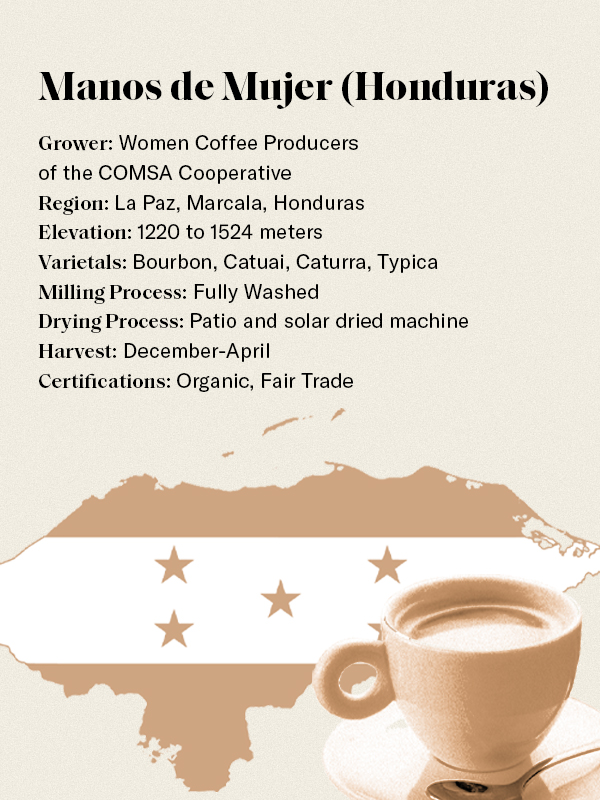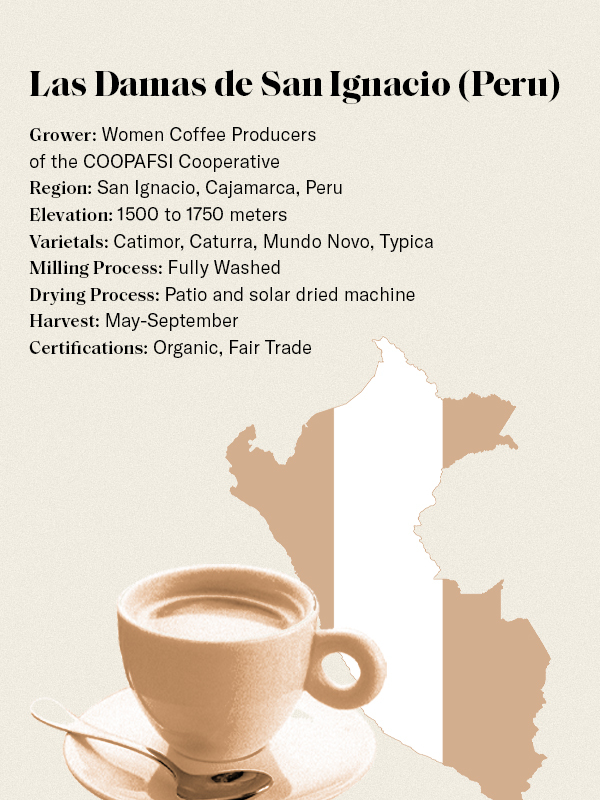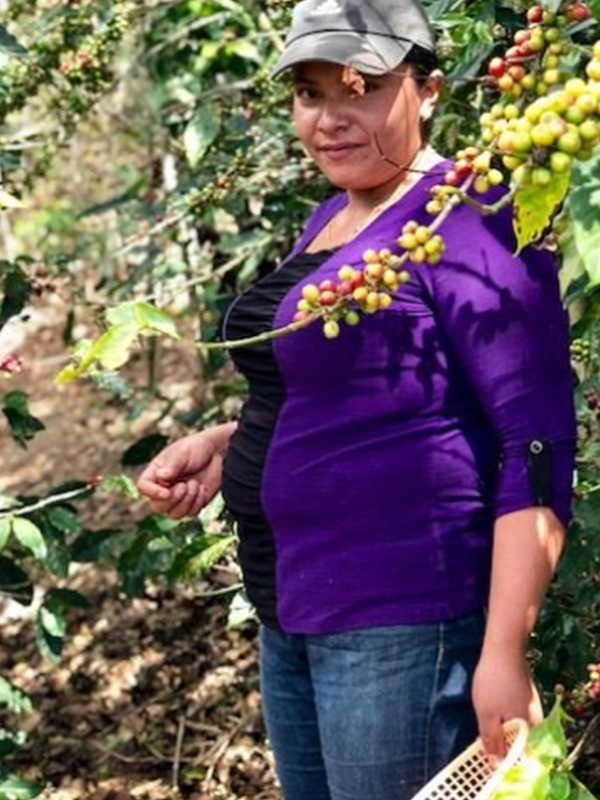Sweet July’s medium-roast house blend has been a crowd-pleaser among coffee lovers for its approachable yet deep flavors, with notes of black cherry, semisweet chocolate and hazelnut. The story behind the coffee’s origins is as rich as its taste.
In partnership with Summit Coffee Co., which helps locate, ship and blend the signature coffee, Sweet July sources beans exclusively from women-led cooperatives in Central and South America, an intentional choice. What ends up in the hands of customers comes from women who are dedicated to fighting for a voice—and a seat at the table—in a historically white male-dominated industry.
“These women face a lot of adversity in their home countries,” says Olivia Stanley, brand manager at Summit Coffee Co. Each cooperative comprises 200-300 members, many of whom don’t have the resources to run single-lot farms by themselves. Facing the challenge of figuring out how to survive and thrive head-on, they decided to merge with other like-minded women and combine harvests. Coffee happens to be their passion, but that doesn’t make it an easy profession.
“The bar is always set higher to enter into the field of production if you are a woman coffee producer,” adds Donovan Dixon, director of coffee at Summit Coffee Co. Between 20% and 30% of coffee farms are female-operated, with women behind 70% of the world’s coffee production, according to a study from the International Coffee Organization, but women endure lower access to resources like land and receive less recognition than their male counterparts.
And yet, despite these challenges, the two main women-led cooperatives that grow Sweet July’s coffee prioritize giving back. “Not only do they produce their own coffee, but they take an active role in maintaining a better quality of life for their community,” says Dixon.
Here’s a look at the two main cooperatives behind Sweet July’s house blend:

Manos de Mujer, based in Honduras, has been operating since 2013. The community of 15 women-led and operated farms is a subset of Finca Humana (which translates to the Human Farm) at Café Organico Marcala, S.A. (COMSA), an organization in Marcala, Honduras, that promotes gender equality in farming. A portion of its coffee sales goes toward supporting a children’s school for agriculture.

Las Damas de San Ignacio, based in Peru, has evolved since its founding in 1969. In 2016, the cooperative formed a committee, composed only of women, that is responsible for distributing loans to help local producers maintain their land, kitchens and livestock. The cooperative also maintains a computer lab for its members, which allows them to stay abreast of important developments in the ever-evolving global coffee market.
“I’m always struck by the fact that at the core, all we all want is a seat at the table—a place to be able to share our expertise and love for coffee,” says Dixon. “These producers are fantastic stewards of what makes coffee so great.”
In addition to producing high-grade coffee, these stewards demonstrate the power of resilience, and the foundation for what hopefully yields a more equitable future in coffee.







